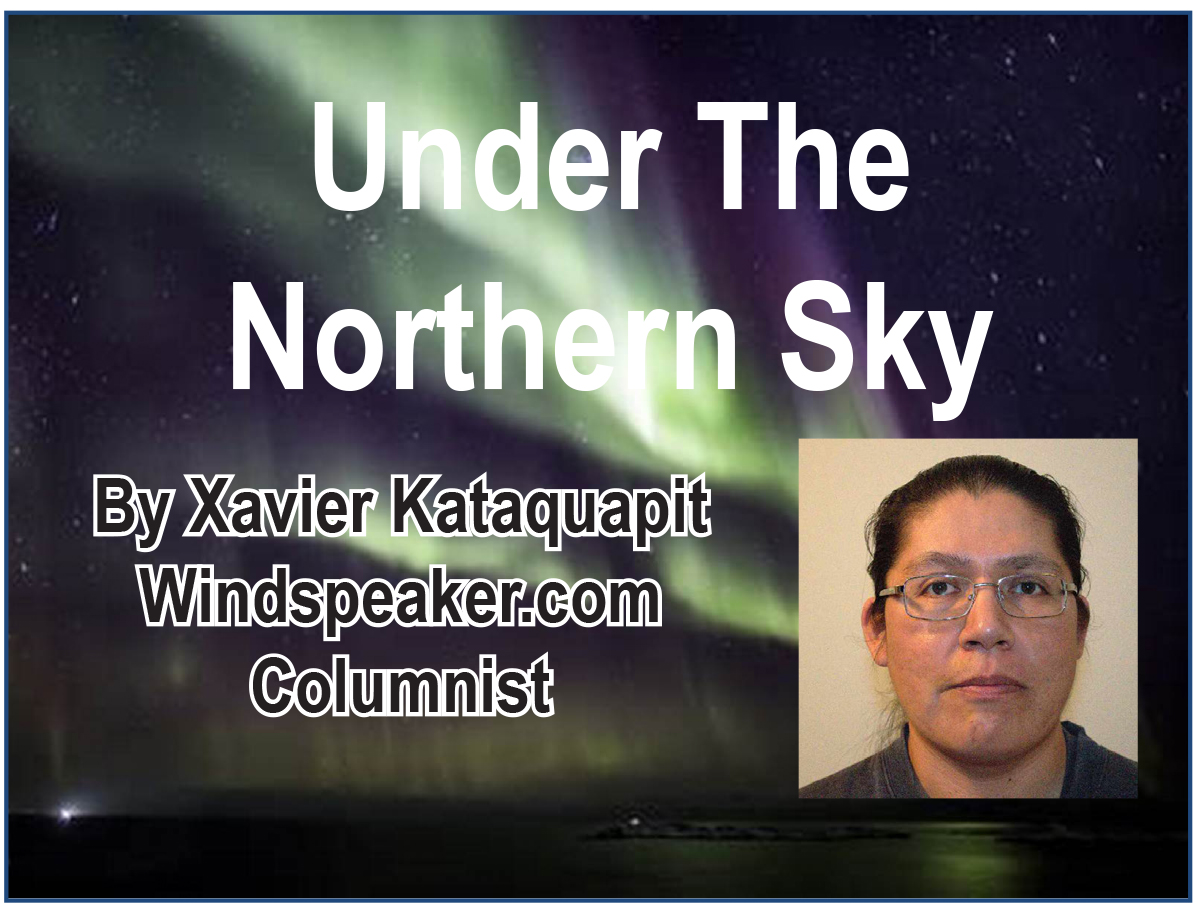
By Xavier Kataquapit
I recall years ago when I had lunch with a couple of experienced journalists. The conversation was mostly about how the media landscape was changing and that the big changes happened first during the U.S. led Gulf War of the early 1990s and then again after the Sept. 11, 2011 World Trade Center attacks. It was getting more difficult to report stories that had to do with war, industry, government, environmental or conservation issues and anything positive about Indigenous news.
Over the years, many newspapers have had to close down or downsize as the trend was more to social media and online content. Some very good independent media developed online and many of these were started by journalists who lost jobs with the downsizing or closing of so many print media.
These days all of the mainstream media in print, broadcast and online are owned and controlled by huge corporations and that has limited the ability for journalists to tell many stories from all sides. Money is generated for the mainstream media by advertising coming from most of the major industries involved, mainly in resource oil and gas, pharmaceuticals, consumer products, automotive companies, armament corporations and government.
The independent media that is mostly online has to depend on funding by people who contribute in one way or the other directly from their pockets. Obviously, these independent media do not have the backing of the billionaires, multi-millionaires and business interests that support the mainstream media. Still they do survive and serve an important function in that they abide by the old journalism rules to cover all sides of a story, provide indepth news and they don’t have to answer to the wealthy corporate owners.
Indigenous media is more along the lines of independent news and is supported mostly by Native advertising from businesses and government. These print, broadcast and online media provide at least a voice for Indigenous people and are more free and independent.
Here are some examples of media I trust: pressprogress.ca ; www.readthemaple.com ; thetyee.ca ; canadiandimension.com ; www.nationalobserver.com ; therealnews.com ; ricochet.media ; rabble.ca ; www.canadaland.com ; newrepublic.com ; rsf.org (reporters without borders) ; miningwatch.ca ; democracywatch.ca and www.counterpunch.org I also follow individuals including seymourhersh.substack.com, a Pulitzer Prize-winning journalist.
I also follow Indigenous news outlets, including Aboriginal Peoples Television Network (APTN) and their national news service at www.aptnnews.ca, as well as Indigenous news services including windspeaker.com ; wawataynews.ca ; nationnews.ca ; theturtleislandnews.com and www.albertanativenews.com
One of the things I recall about my discussions with journalists has been the consensus that most stories that involve issues with resource extraction, pharmaceuticals, government and business, in general, have to do with finances hence the golden rule that for any news story, always follow the money.
It is easy to spot the issues in our world today where money has to be followed to tell the entire story from all sides.
Wars are always claimed to be fought for good reasons, but we know and understand this is never the case and the only ones who benefit from these tragic conflicts are the very wealthy who sell the armaments, jets, missiles and all types of technology and hardware that amounts to billions of dollars. Lobbyists for these companies are constantly pushing government leaders, congressmen and women and members of Parliament to fall into line when war is concerned. In the end millions of people die, cities and towns are destroyed and in the case of modern-day conflicts we could be faced with nuclear war and that would mean the end of our civilization.
When it comes to pharmaceuticals, the same is true as there is very little transparency in covering stories from all sides. Pharmaceutical corporations are huge and have billions and billions of dollars in profits while also lobbying members of government to do their bidding and providing huge amounts to mainstream media in advertising dollars.
So when it comes to most stories, a good journalist will always follow the money but that is also a good thing for everyone to do. If there are initiatives in your First Nation or your municipality, town or city it is important to look at what the advantages are for people. If you can see that only a small number of people pushing an initiative are the ones benefiting financially then that is a problem and should be addressed.
Our Indigenous leaders are constantly having to deal with business people and governments wanting to work with our communities as it involves funding and support from government. Our chiefs and council members have to keep a balance of moving ahead with good projects and making sure everyone benefits. It is a good idea to always follow the money.
